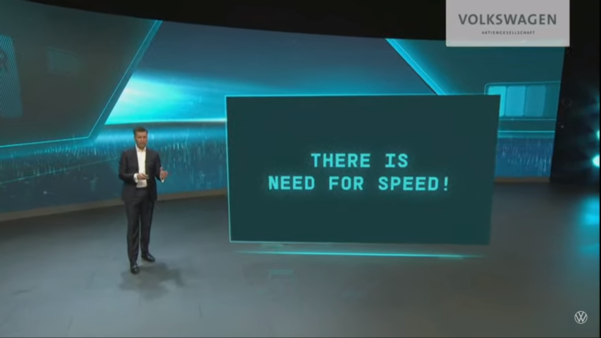Input 2021.03.15 23:37 | Revision 2021.03.15 23:39

At the event, Volkswagen announced that the new battery cells will be prismatic and will be replaced with all-solid batteries in the long run. Batteries for electric vehicles are divided into cylinders, pouch types, and squares according to their shape. LG Energy Solution and SK Innovation have made pouch-type batteries, Chinese CATL and Samsung SDI have made prismatic batteries, and Japanese Panasonic has made cylindrical batteries.
This raises the possibility that major battery suppliers will change in the future. It is also said that Northvolt, a Swedish battery company in partnership with Volkswagen, mainly produced prismatic batteries, and that Volkswagen made this decision. Volkswagen plans to introduce these new battery cells in 80% of all electric vehicles it produces by 2030.

It is also planning to actively promote the expansion of the global fast charging network. In Europe, there are plans to build 18,000 public fast charging stations by 2025. To this end, it has agreed to cooperate with energy company BP (UK), Spain Iberdrola, and Italy Enel. About 400 million euros (about 540 billion won) will be invested here.
“E-Mobility (electric vehicles) has become a core business for us,” said Volkswagen CEO Herbert Dys. “We will strive to gain a long-term advantage in the competition for the best battery and the best customer experience.”
